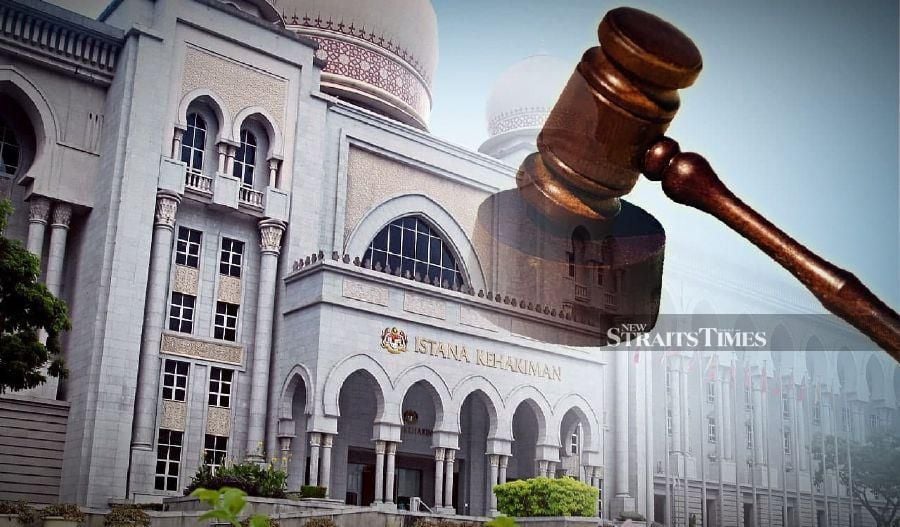AN old friend called me recently as he wanted to know whether the law allows an appellant in a criminal case (after his conviction) to adduce fresh evidence on appeal.
When I asked him why the sudden interest in such a heavy subject, he referred me to that day's media report entitled "Bid to adduce fresh evidence in SRC Case — Najib's application to be heard on Tuesday" (NST, Dec 4).
I told him since the Court of Appeal is going to hear the application very soon, I think it is best that I do not comment on it, but I could tell him the general principles of the law based on judicial decisions in Canada and Singapore.
As a general rule, fresh evidence will be admitted on appeal in the following circumstances — (i) the new evidence could not have been obtained with reasonable diligence for use at the original hearing, (ii) if given, the new evidence would probably have an important influence on the result of the case (although it need not be decisive), and (iii) the new evidence is apparently credible.
An appellate court has the discretion to permit such further evidence. An important factor to consider is that "in the interests of justice there is an end to litigation".
In order to adduce fresh evidence at the appeal hearing, the appellant must bring a motion to adduce fresh evidence.
This requires a notice of application explaining what the fresh evidence is and why it is in the interests of justice that it be received by the court.
In R. v. Palmer (1980), the Canadian Supreme Court laid down the following test for the admission of fresh evidence on appeal:
THE evidence should not be admitted if, by due diligence, it could have been adduced at trial (this principle is not applied as strictly in criminal cases as in civil cases);
THE evidence must be relevant;
THE evidence must be credible; and,
THE evidence must be such that if believed, it could reasonably be expected to have affected the result.
In Singapore, the courts adopted a similar approach. They are guided by the following three principles of "non-availability, relevance, and reliability" as laid down in the landmark case of Ladd v Marshall [1954] 1 WLR 1489.
The three principles were followed by Chao Hick Tin JA in Soh Meiyun v Public Prosecutor [2014] 3 SLR 299.
In that case, the appellant was convicted by the trial judge of maid abuse charges and sentenced to 16 months' imprisonment.
On appeal, she applied to adduce fresh evidence in the form of a psychiatric report from the Institute of Mental Health to show that she suffered from obsessive compulsive disorder at the material time.
Chao JA observed that such a report could have been adduced at trial with reasonable diligence; consequently, the report thus did not satisfy the non-availability condition.
Legal commentators state that the three conditions laid down in Ladd v Marshall were restrictive in nature, and applications to introduce fresh evidence would only be allowed in "extremely limited" circumstances.
In later years, however, the Singapore courts have refined the three conditions in the context of criminal proceedings.
According to them: "The upshot of these developments is that accused persons may find it easier to admit fresh evidence on appeal, although they run the risk of facing significantly enhanced sentences should they be found to have abused the court's process." ("Adducing Fresh Evidence on Appeal: Guidance from recent Court of Appeal Decisions", [2020] SAL Prac 8).
A recent Astro Awani report stated that former prime minister Datuk Seri Najib Razak is applying to the Court of Appeal to allow fresh evidence to be taken from Malaysian Anti-Corruption Commission (MACC) Chief Commissioner Datuk Seri Azam Baki, MACC investigating officer Rosli Hussein and other witnesses in relation to the case.
In his affidavit in support of the application, Najib stated that such information "of complicity" was not available or could not be obtained during his SRC trial at the High Court, and when the Court of Appeal previously heard the appeal.
To surmise, the former prime minister has the right to apply, but it is up to the Court of Appeal to decide.
The writer was a federal counsel at the Attorney-General's Chambers and visiting professor at Universiti Teknologi Malaysia. He is now a full-time consultant, trainer and author






